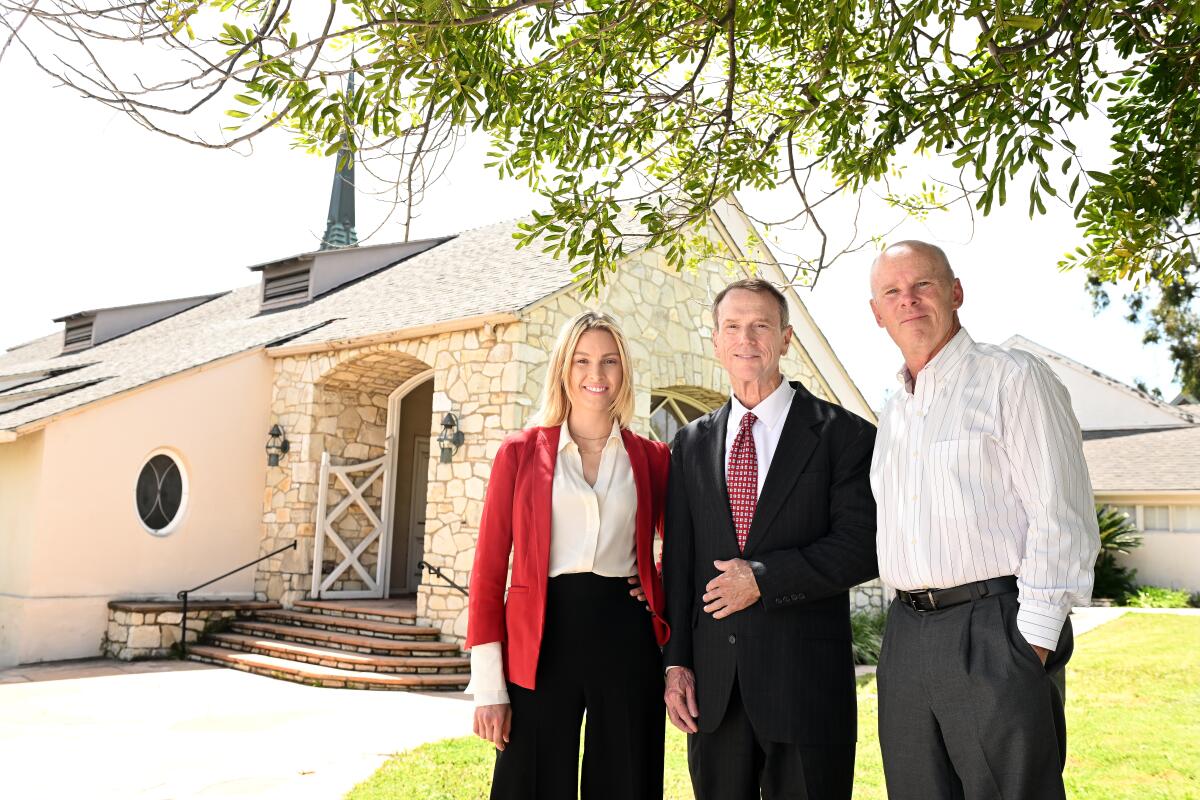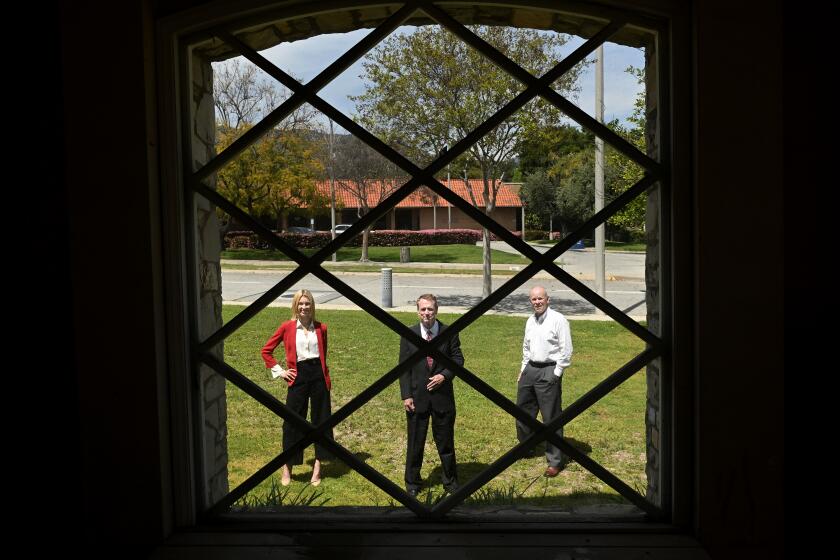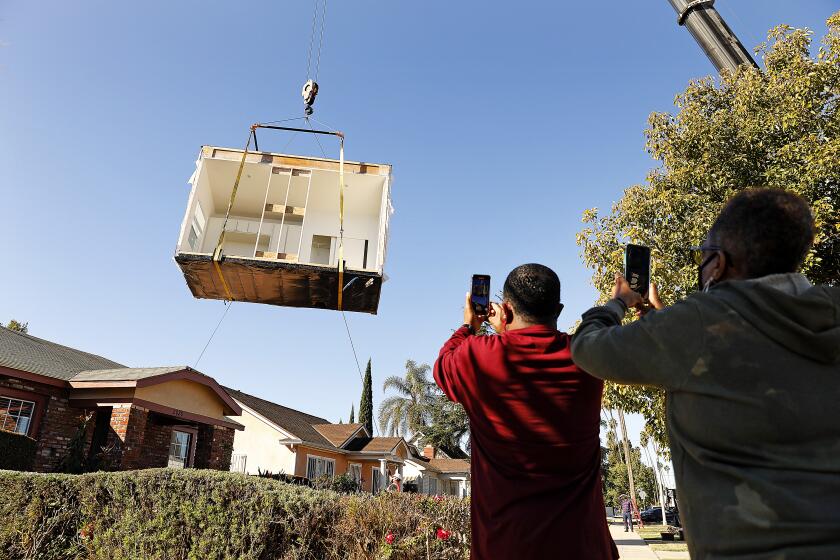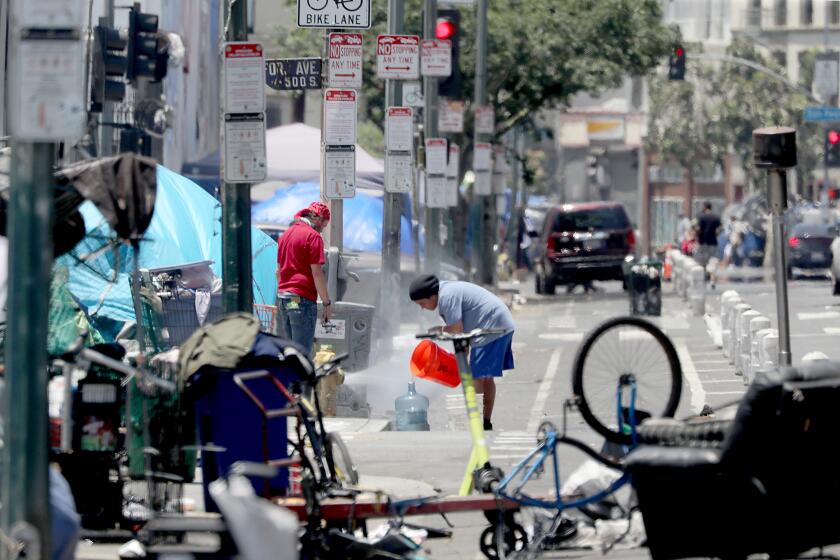Editorial: No, wealthy La Cañada Flintridge shouldn’t be allowed to block affordable housing

California is again cracking down on scofflaw cities that refuse to follow state housing laws. Good.
California cannot allow cities to shirk their responsibility to make room for more housing. The state needs 2.5 million new homes by 2031 to ease the shortage that has driven up home prices and rents to unaffordable levels, fueling poverty and homelessness.
For the record:
3:03 p.m. Dec. 15, 2023An earlier version stated that California is seeking to intervene in the developer’s lawsuit against the city. In fact, the state wants to intervene in a separate lawsuit against the city filed by the California Housing Defense Fund.
The latest target is La Cañada Flintridge, an affluent city in the foothills of the San Gabriel Mountains that is being sued by a development firm for blocking a mixed-income housing project that should have sailed to approval. This week, Gov. Gavin Newsom and Atty. Gen. Rob Bonta sought to intervene in a lawsuit, backing the developer and taking on the city, which has stifled housing production within its borders for decades.
For years, the city of La Cañada Flintridge has blocked a development group’s housing project. Now the group may have legal footing to force the project forward.
It’s the state’s first lawsuit involving “builder’s remedy,” a long-unused part of state law that lets developers build whatever they want so long as the project includes units for low- or middle-income people. Builder’s remedy is only allowed in cities that have failed to write a housing plan that meets state requirements, which includes more than 170 jurisdictions in the state.
Builder’s remedy is a powerful motivator for local elected leaders to adopt compliant housing plans — few cities want to relinquish all control over land use, especially when developers have shocked low-slung communities with proposals for 15-story and 17-story towers.
Lawmakers have gotten the message. Voters want and expect them to fix the state’s housing and homelessness crisis.
Because La Cañada Flintridge has made it nearly impossible to build new housing, particularly more affordable apartments and town homes, its median home price is $2 million and the median rent is $3,500. Between 2013 and 2020, the city added just 21 homes. None were multifamily units, according to its housing plan.
In 2021, La Cañada Flintridge had to update its fair-share housing plan, which requires cities to identify properties where new housing could be built. The city was supposed to plan for an additional 612 units over eight years. But city leaders failed to adopt a plan that met the rules, and the state’s Department of Housing and Community Development sent repeated warnings that the plan was out of compliance, opening the door for builder’s remedy projects — including the mixed-income housing project at the heart of the legal fight.
Solving the homelessness crisis includes ensuring that the people working to help our unhoused population have the means to stay here.
Cedar Street Partners filed an application using builder’s remedy to redevelop a former Christian Science church building on the city’s main street into an 80-unit building, including 16 units designated for low-income tenants, a 14-unit hotel and office space. The City Council rejected the application.
The development firm sued earlier this year, and the nonprofit California Housing Defense Fund filed a separate lawsuit. The law that allows builder’s remedy has been on the books since 1990, but it hasn’t been used much. Developers saw little benefit to steamrolling city leaders that they’ll probably have to work with again.
That’s changed in the last few years. State laws have increasingly usurped local control, allowing more projects to be built without needing local political approval. And now, by intervening in the defense fund’s lawsuit, Newsom and Bonta are sending a clear message that the state will back developers’ use of builder’s remedy, however uncomfortable it may be for communities.
Ideally, California wouldn’t need this kind of shock treatment just to get more housing built. But La Cañada Flintridge and other NIMBY cities have left the state with little choice.
More to Read
A cure for the common opinion
Get thought-provoking perspectives with our weekly newsletter.
You may occasionally receive promotional content from the Los Angeles Times.













